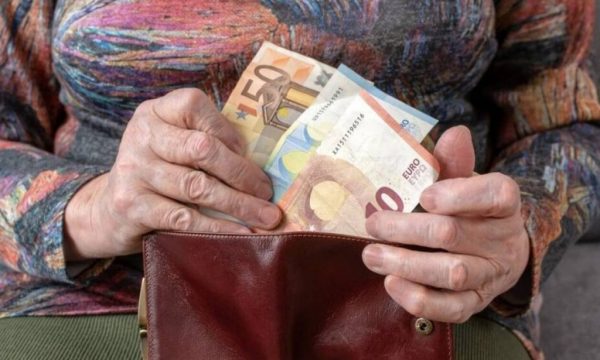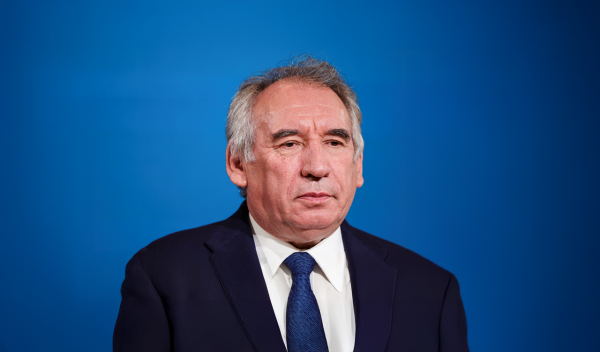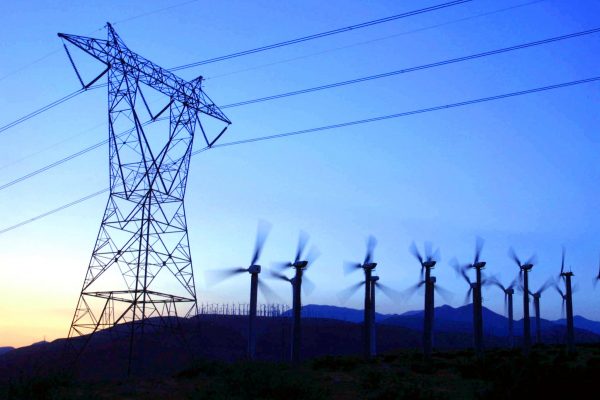
Domestic developments regarding waste management, recycling, environmental awareness and the circular economy were mentioned by the participants in the OT Forum “The Changing World” and the thematic “circular economy and waste management”.
The panel included Manolis Grafakos, general secretary of Waste Management Coordination of the Environment Ministry, Charalambos Charalambidis, project manager of Peloponnese Public Private Partnerships – PPP of TERNA Energy, and Michalis Geranis, President of the Central Macedonia Solid Waste Management Body.
“Fines for landfills are disgraceful”
Initially, answering a question about landfills, Manolis Grafakos stated that Greece pays 3,600,000 euros per semester for fines for landfills, a fine that, as he mentioned, although not particularly important – due to the reduction of landfills from the current and the previous government – is “disgraceful”, as he described it. He called for the mobilization of citizens and institutions to stop Greece being a champion in Europe in these disgraceful fines.
“When we talk about costs, we forget the costs to the environment” from the landfills above the aquifer and next to beaches, said Charalambos Charalambidis, noting that this is an “immeasurable” cost. “Climate change is here and action is needed to tackle it,” he added, citing integrated management, European directives and the state’s effort to comply with these so that Greece can keep up with the European average. He noted that although there is a bad image of this type of infrastructure in local communities, it is an investment that creates many jobs while 70% -80% of revenues are redirected to these. He described green investments as an important pillar of growth for the Greek economy.
“People adapt”
“If we do not change, nothing will change,” said Michalis Geranis, noting that the region of central Macedonia has won the first three awards for environmental information and awareness of students. He stressed the importance of the new generation, but also the need for continuous information of the citizen. “Man adapts to any environment, he does not need an ax,” he said characteristically. He said that the long-term effort to cultivate environmental awareness among young people has the result that when the State gives the tools, “we are ready to move from theory to practice.” He called on young people “to stay in Greece to change the place, not to change place,” referring to the brain drain.
“Waste burial is over”
Returning to the issue of landfills, Mr. Grafakos said that at the moment there are 42 active cases of fines, which does not mean that there are 42 active landfills as some have simply not been rehabilitated. “Landfills are the old world we want to leave behind,” said the Environment Ministry secretary general. Describing the “new world”, he characteristically stated that “the successful mayor” 20 years ago put a sufficient number of garbage bins and transported the garbage to the landfill. “The new mayor must create the infrastructure so that everyone can separate the waste,” he added. He stressed the importance of the brown bin for the disposal of food waste, which makes up 40% of waste, and which is now composted. “There will be an end waste burial,” he clarified. He announced that yellow paper bins, which make up 25% of waste, would soon appear, noting that many recyclable materials, even materials such as wood, could be diverted from landfill.
What is left after sorting will be taken to the green bin, and will not be taken to landfill but to modern units where the materials will be separated. He stated that 5 such units are already operating in Greece, while another 8 are under construction and 11 more are under contract drafting. As for the waste, the goal is for this to be led to treatment plants by 2030, which will probably be 4 in number, for energy production. “This is the new world. “A new mentality, a different routine, new jobs and investments, a virtuous economic cycle,” he concluded.
Public Private Partnerships
Referring to the operation of PPPs, Mr. Charalambidis described that the contracting authority and the contractor collaborate and construct a project with specific objectives. “We achieve leverage of private investments, thus freeing up public resources,” described TERNA’s PPP project manager for the Peloponnese, speaking of a “win-win” result. He announced in advance that such structures – which already exist in parts of the country, while TERNA already operates a factory in Epirus and has three under construction in the Peloponnese – and is coming to Thessaloniki and Athens.
“In September 2022, sorting at the source will begin at the regional level in central Macedonia,” said Mr. Geranis, stressing that organic waste is a very good fertilizer and the residue can be used for energy production. Referring to regional planning, the President of the Central Macedonia Solid Waste Management Body said that in addition to the unit that already operates through a PPP in Serres and serves Serres and Kilkis, a new structure is coming to Mavrorachi that will concern Pieria, Pella, Imathia, western Thessaloniki and part of the municipality of central Thessaloniki, soon another unit will be auctioned for eastern Thessaloniki, which will concern the rest of the municipality of Greece’s second largest city and Halkidiki. “We are late as a country but we will take big steps in a short time,” he said.
Energy produce
Referring to the production of energy from waste, Mr. Charalambidis said that the operating unit of TERNA in Epirus and the structures under construction in the Peloponnese are energy autonomous, as they operate with energy produced from the waste itself. “There is a plan for the waste to be able to provide energy,” he added, referring to 60-100 megawatts that can be recovered from materials that would otherwise be led to some landfill.
Closing and referring to recycling, Mr. Grafakos noted that recycling rates will skyrocket when the brown bin enters to collect food waste. He reiterated that the yellow bucket will be introduced soon. “With a serious infrastructure program, recycling will increase”, stressed the general secretary of the Energy Ministry. “Reduce, reuse, recycle, and ultimately generate energy instead of landfill,” he described the new cycle of waste.
Waste management is expensive
He described it as a “myth” that there were widespread protests by local communities about the location of waste treatment plants, noting that in all the areas where the site was located, “the communities saw the issue with maturity”. He said that studies are underway for waste power plants, which will probably be 4 in number. He clarified that the management of waste with an environmental dimension is expensive, noting that it is cheap to throw it in the sea or in a ravine. He also referred to the institutionalization of the “pay as I throw away” logic, noting that there may be a charge corresponding to the production of waste, which could be an incentive for less waste production.
Latest News

Rhodes Airport Tops Fraport Greece’s Regional Airports in 2024 Performance
According to Fraport's data, more than 35 million passengers (specifically 35.2 million) were handled by Fraport-managed airports during the 11 months.

European Central Bank Cuts Interest Rates by 25 Basis Points
It is the fourth cut of interest rates by Europe’s central bank, a move expected by the markets and financial analysts leading to the rate settling at 3%.

Airbnb: New Measures Add €600 in Extra Costs for Property Owners
Property managers face an immediate administrative fine of 5,000 euros if access to the inspected property is denied or any of the specified requirements are not met.

Economist: Greece Included in the Best Performing Economies in 2024
Meanwhile, Northern European countries disappoint, with sluggish performances from the United Kingdom and Germany.

EasyJet Expands Its Routes from Athens
The airline’s two new routes will be to London Luton and Alicante and they will commence in summer 2025.

Capital Link Forum Highlights Greece’s Economic Resurgence; Honors BoG Gov Stournaras
Capital Link Hellenic Leadership Award recipient, Bank of Greece Gov. Yannis Stournaras, an ex-FinMin, was lauded for his pivotal role during Greece’s economic recovery

Tourist Spending in Greece Up by 14%, Visa Card Analysis Shows
Greece’s capital Athens emerged as the most popular destination, recording a 17% increase in transactions with Visa cards, surpassing even the cosmopolitan island of Mykonos.

Inflation in Greece Unchanged at 2.4% in Nov. 2024
The general consumer price index (CPI) posted a 0.4% decrease in November compared to the previous month

2024 Christmas Holidays: Extended Shop Hours Schedule
The 2024 Christmas Holidays extended shop hours schedule commences on Thursday, December 12 and runs until the end of the year.

ELSTAT: Seasonally Adjusted Unemployment Down in October
The number of employed individuals reached 4,284,694, an increase of 67,723 compared to October 2023 (+1.6%) and 22,002 compared to September 2024 (+0.5%).














![Fraport: Πάνω από 35 εκατ. επιβάτες στα αεροδρόμια το 11μηνο – Πτώση στη Μύκονο [πίνακας]](https://www.ot.gr/wp-content/uploads/2022/06/fraport-90x90.jpg)


























 Αριθμός Πιστοποίησης Μ.Η.Τ.232433
Αριθμός Πιστοποίησης Μ.Η.Τ.232433